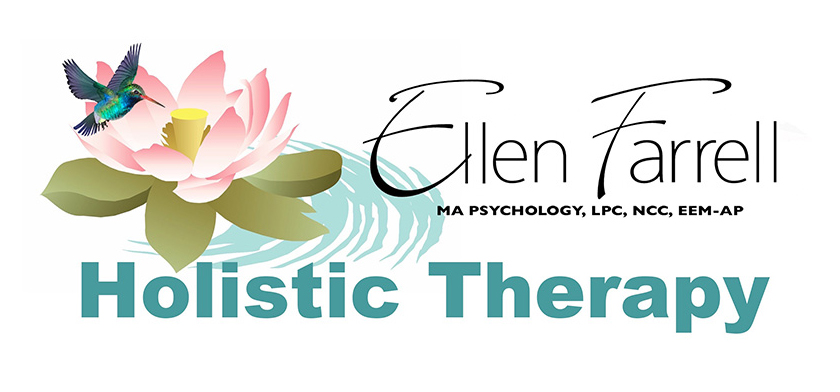What is a Healthy Relationship?
By Ellen Farrell, MA, NCC, LPC, EEM-AP ![]()
Explore your relationship status level of health!
In her book In Love and in Danger, (c) 1998, author Barrie Levy outlines warning signs of unhealthy, or even abusive relationships.
One must identify whether these issues are generated from within / past/ fears – or from others in current situations: partner, friend, or family members. She states,
“Many victims don’t recognize that they are being abused. They don’t realize how they have gradually changed because of the abuse. Are you a victim of dating <or other> violence? If you answer yes to two or more of the below questions, your relationship is, or is likely to become abusive…
- Are you frightened of your boyfriend or girlfriend’s temper/afraid to disagree with him or her?
- Do you find yourself apologizing to self /others for your partner’s behavior when you’re treated badly?
- Have you been frightened by his/her violence – been hit, kicked, shoved, or had things thrown at you?
- Do you not see friends or family because of his/her jealousy?
- Have you been: forced to have sex/afraid to say no to sex?
- Are you forced to justify every: thing you do/place you go/person you see to avoid his/her temper?
- Have you been wrongly and repeatedly accused of flirting/having sex with others?
- Are you unable to go out, get a job or go to school without his/her permission?”
Gavin de Becker, author of The Gift of Fear, drawing on his extensive expertise “explodes the myth that most violent acts are random and unpredictable… he shows that they usually have discernable motives and are preceded by clear warning signs.”
De Becker details pre-incident indicators (PIN’s), which can determine if someone poses a danger.
“One can learn how to: Recognize the survival signals that warn us about risk; Rely on their intuition; Separate real from imagined danger; Predict Dangerous Behavior; Evaluate whether someone will use violence; and Move beyond denial <to let> intuition work”.
Remain aware of thoughts/feelings and others’ actions – they provide important information. This can help prevent one from becoming embroiled in a situation or relationship that could be destructive and abusive – ask
“Am I respecting/honoring myself?” and “How do my relationships with others reflect a healthy and honoring way of being?”
The Domestic Violence & Incest Resource Centre (DVIRC.org), puts respect as the foundation of a healthy relationship – signs of “healthy” are stated as being when you:
- Have fun together and both feel like you can be yourself;
- Trust each other, listen to each other, and can have different opinions and interests;
- Can both compromise, say sorry, and talk arguments out;
- Don’t have to spend all of you spare time together – can spend time on your own, or with your own friends/family.
Stay aware, respect yourself, and listen to your intuition.
Work on correcting patterns that are unhealthy – but remember, it takes both of you contributing and sharing this goal to make it work.
Remember to talk with trusted friends/family who are loving and respectful – and ask for help and support when needed!
This article was originally printed in the SCAD Chronicle, where Ellen Farrell was a counselor, 2000-2006. Updated 2016.


